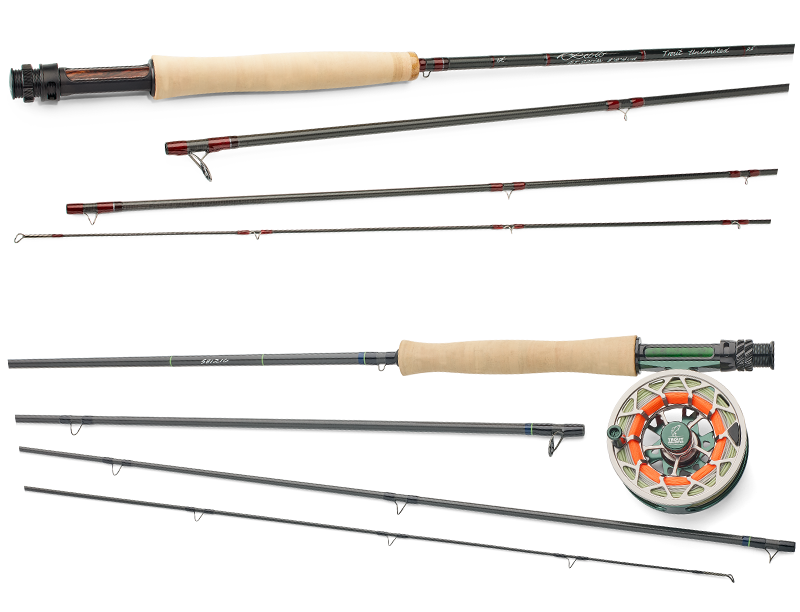06/16/2009
Trout
Unlimited Senior Scientist Testifies Before U.S. House Subcommittee on
Two Bills That Will Improve Trout and Salmon Habitat
June 16, 2009
For Immediate Release:
Contact:
Jack Williams, Senior Scientist, Trout Unlimited, 541-261-3960
Steve Moyer, Vice President, Government Affairs, 703-447-8401
Trout Unlimited Senior
Scientist Testifies Before U.S. House Subcommittee on Two Bills That
Will Improve Trout and Salmon Habitat
Washington, D.C. Jack
Williams, Trout Unlimiteds (TU) Senior Scientist, provided testimony
today before members of the House Subcommittee on Insular Affairs,
Oceans, and Wildlife in strong support of the Pacific Salmon Stronghold
Conservation Act (H.R. 2055) and the National Fish Habitat Conservation
Act (H.R. 2565).
The United States has a
variety of laws and regulations aimed at protecting rapidly declining
stocks of salmon and steelhead, but nothing to make certain remaining
healthy stocks stay that way Williams testified. Enacting the Pacific
Salmon Stronghold Conservation Act will provide a critical missing
element to current salmon conservation and management policies by
focusing on pro-active, preventative actions to protect North Americas
healthiest wild salmon rivers, he said.
The Pacific Salmon Stronghold
Conservation Act (H.R. 2055) is sponsored by U.S. Rep. Mike Thompson
(D-Calif.) would establish a Salmon Stronghold Partnership program to
conserve wild Pacific salmon and for other purposes.
The National Fish Habitat
Conservation Act (H.R. 2565) is sponsored by U.S. Rep. Ron Kind
(D-Wis.) and would conserve fish and aquatic communities in the United
States through partnerships that foster fish habitat conservation.
Nine partnerships are already actively pursuing large scale
improvements for fish habitat, including the eastern brook trout joint
venture from Maine to Georgia, the Driftless Area Restoration
Partnership n the Midwest, and the Western Native Trout Initiative in
the western states. The bill would provide additional, much needed
funding and a useful governance infrastructure that is modeled after
the successful North American Wetlands Conservation Act.
Williams testified that both
the Pacific Salmon Stronghold Conservation Act and National Fish
Habitat Conservation Act provide a more comprehensive and proactive
approach to the management and conservation of fishery resources.
We have invested millions of
dollars in salmon recovery efforts, but these efforts alone will not be
sufficient to prevent future listings or safeguard against future
declines Williams said, citing research that says almost 30 percent of
salmon stocks have already been lost. Complementing existing salmon
recovery programs with the stronghold approach embraced in the Salmon
Stronghold Act will invigorate voluntary public and private efforts to
protect core centers of wild salmon abundance and diversity
In the United States, we invest
more than $1 billion annually in stream and river restoration yet the
extinction rate for freshwater fish is five times that of terrestrial
species such as birds and reptiles. Clearly, money alone is not the
answer. New approaches are needed.
Williams testified that the
National Fish Habitat Conservation Act acknowledges the importance of
fisheries to our ecological, economic, and cultural well being and
provides a more strategic approach to their management and
protection. Further, the Act facilitates coordination and
cooperation in fisheries management. This is critical because
fisheries and the streams and rivers that harbor them know no
boundaries.
It is well past time for our
country to adopt proactive approaches to fisheries management,
Williams said. The potential for additional fisheries losses are too
great, especially in an era of rapid climate change, he said.
To read Jack Williams full testimony, go to www.tu.org/williams.
Prior to his position at TU,
Williams was an Endangered Species Specialist for the U.S. Fish and
Wildlife Service, National Fisheries Program Manager for Bureau of Land
Management (BLM), Science Advisor to the Director of the BLM, Deputy
Forest Supervisor on the Boise National Forest, and Forest Supervisor
on the Rogue River and Siskiyou National Forests. He is an adjunct
professor at Southern Oregon University.
TU is a private, nonprofit
organization with more than 140,00 members who are dedicated to
conserving, protecting and restoring North Americas trout and salmon
fisheries and their watersheds. In 2009, TU celebrates its 50th
anniversary.

